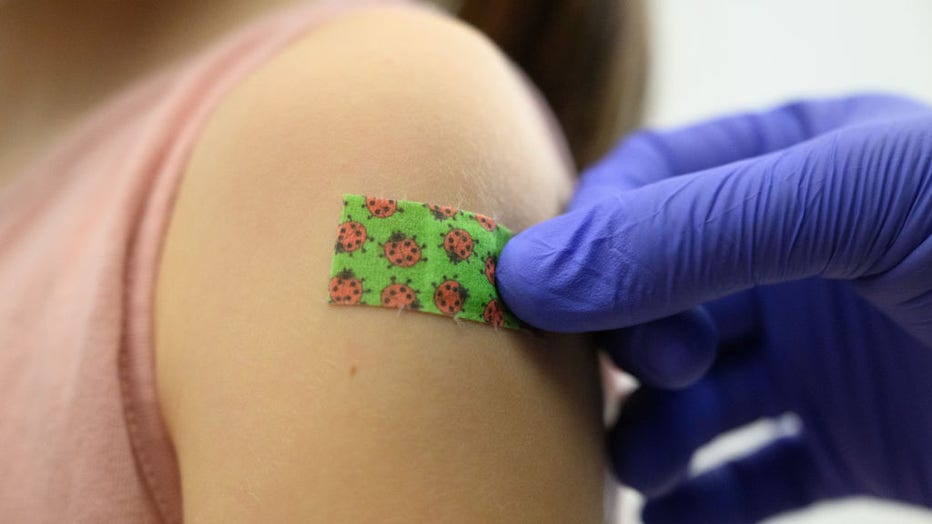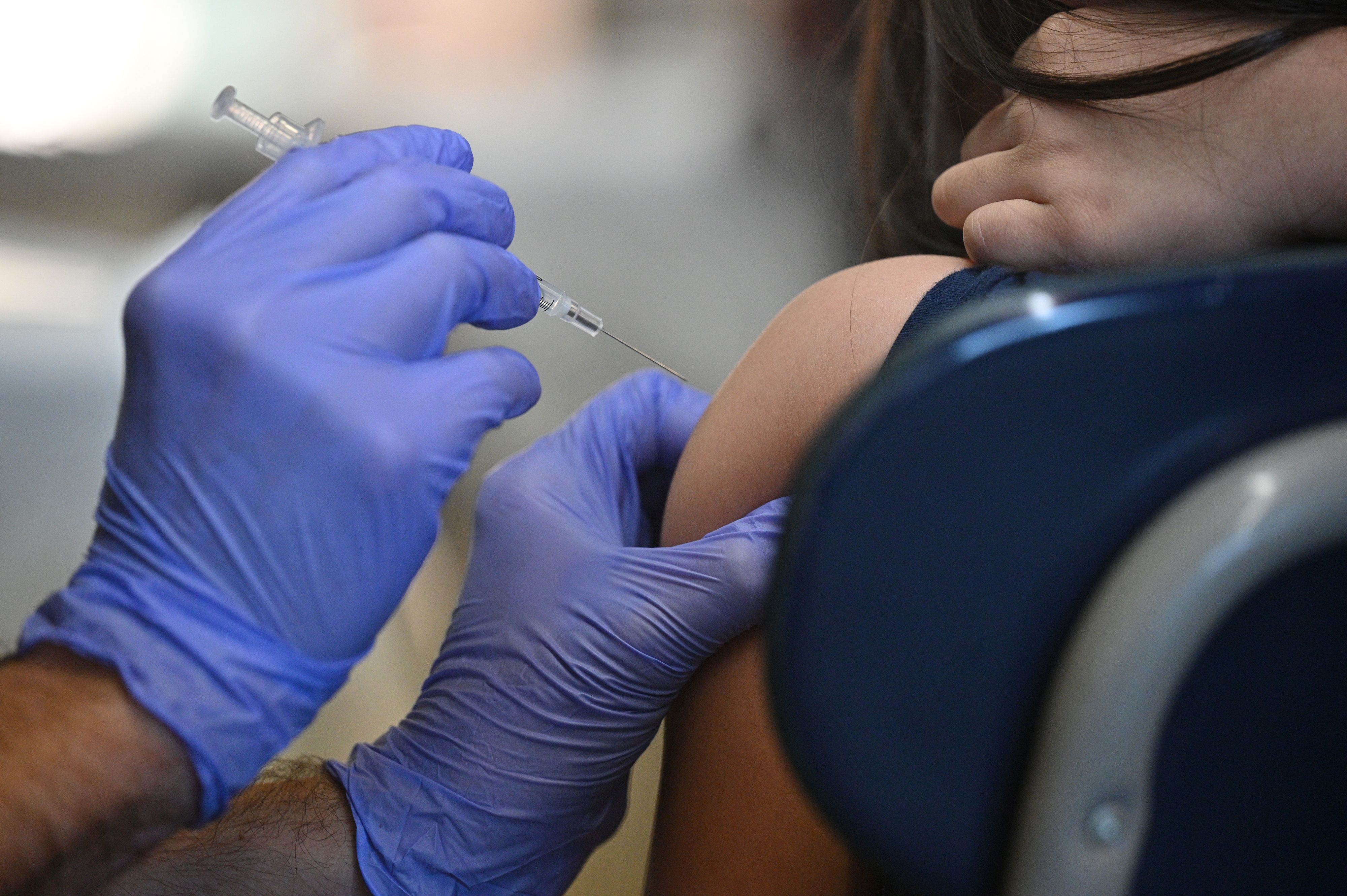COVID-19 vaccine: CDC approves 1st shots for US kids under 5
The U.S. Centers for Disease Control and Prevention’s independent panel of advisers voted to recommend the first COVID-19 shots for babies and preschoolers, paving the way for vaccinations to begin next week.
The CDC’s committee of experts began debating the two-dose Moderna and the three-dose Pfizer vaccines on Friday and voted unanimously Saturday afternoon. It’s one of the final steps left to get the shots in the arms of America’s youngest children. CDC Director Dr. Rochelle Walensky gave the final sign-off just a few hours later.
"We know millions of parents and caregivers are eager to get their young children vaccinated, and with today’s decision, they can," Dr. Rochelle Walensky, the CDC's director, said in a statement.
The government has been gearing up for the start of the shots early next week, with millions of doses ordered for distribution to doctors, hospitals and community health clinics around the country. Roughly 18 million kids will be eligible - about 1 1/2 years after the vaccines first became available in the country for adults, who have been hit the hardest during the pandemic.
While young children generally don’t get as sick from COVID-19 as older kids and adults, their hospitalizations surged during the omicron wave and FDA’s advisers determined that the benefits from vaccination outweighed the minimal risks. Studies from Moderna and Pfizer showed side effects, including fever and fatigue, were mostly minor.
"As we have seen with older age groups, we expect that the vaccines for younger children will provide protection from the most severe outcomes of COVID-19, such as hospitalization and death," FDA Commissioner Robert Califf said in a statement.
Roughly 440 children under age 5 have died from COVID-19, federal data show.
The Food and Drug Administration already gave its authorization after its own panel’s unanimous recommendation for the shots from Moderna and Pfizer for children as young as 6 months.

(Photo by Robert Michael/picture alliance via Getty Images)
At a Senate hearing Thursday, Walensky said her staff was working over the Juneteenth federal holiday weekend "because we understand the urgency of this for American parents." She said pediatric deaths from COVID-19 have been higher than what is generally seen from the flu each year.
"So I actually think we need to protect young children, as well as protect everyone with the vaccine and especially protect elders," she said.
The FDA also authorized Moderna’s vaccines for school-aged children and teens; the CDC will review those next week. Pfizer’s shots had been the only option for those ages.
The Biden administration has been planning for the last remaining ineligible age group, pressing states to prioritize large-volume sites like children's hospitals and to make appointments available outside regular work hours to make it easier for parents to get their kids vaccinated.
With the FDA's emergency use authorization, manufacturers can begin shipping vaccines across the country.
Pfizer and Moderna COVID-19 vaccines for kids under 5
Pfizer's vaccine for kids younger than 5 is one-tenth of the adult dose. Three shots are needed: the first two given three weeks apart and the last at least two months later.
Moderna's is two shots, each a quarter of its adult dose, given about four weeks apart for kids under 6. The FDA also authorized a third dose, at least a month after the second shot, for children who have immune conditions that make them more vulnerable to serious illness.
In testing, the littlest children developed high levels of virus-fighting antibodies, comparable to what is seen in young adults, the FDA said. Moderna's vaccine was about 40% to 50% effective at preventing infections but there were too few cases during Pfizer's study to give a reliable, exact estimate of effectiveness, the agency said.
"Both of these vaccines have been authorized with science and safety at the forefront of our minds,’’ Dr. Peter Marks, FDA’s vaccine chief, said Friday at a news briefing.
Marks said parents should feel comfortable with either vaccine and should get their kids vaccinated as soon as possible, rather than waiting until fall when a different virus variant might be circulating. He said adjustments in the vaccines would be made to account for that.
"Whatever vaccine your health care provider, pediatrician has, that’s what I would give my child,’’ Marks said.
While both vaccines are for children as young as 6 months, Moderna next plans to study its shots for babies as young as 3 months. Pfizer has not finalized plans for shots in younger infants. A dozen countries, including China, already vaccinate kids under 5, with other brands.
In the U.S., it remains uncertain how many parents want their youngest vaccinated. By some estimates, 75% of all children have already been infected. And only about 30% of children aged 5 to 11 have been vaccinated since Pfizer’s shots opened to them last November.
RELATED: Why are vaccines still important if so many kids have already had COVID-19?
The FDA officials acknowledged those low rates and said the government is committed to getting more older kids vaccinated and having better success with younger kids.
"It’s a real tragedy, when you have something free with so few side effects that prevents deaths and hospitalization,’’ Califf said.
Dr. Beth Ebel of the University of Washington School of Medicine in Seattle, said the tot-sized vaccines would be especially welcomed by parents with children in daycare where outbreaks can sideline parents from jobs, adding to financial strain.
"A lot of people are going to be happy and a lot of grandparents are going to be happy, too, because we’ve missed those babies who grew up when you weren’t able to see them," Ebel said.
This story was reported from Cincinnati. The Associated Press contributed.



